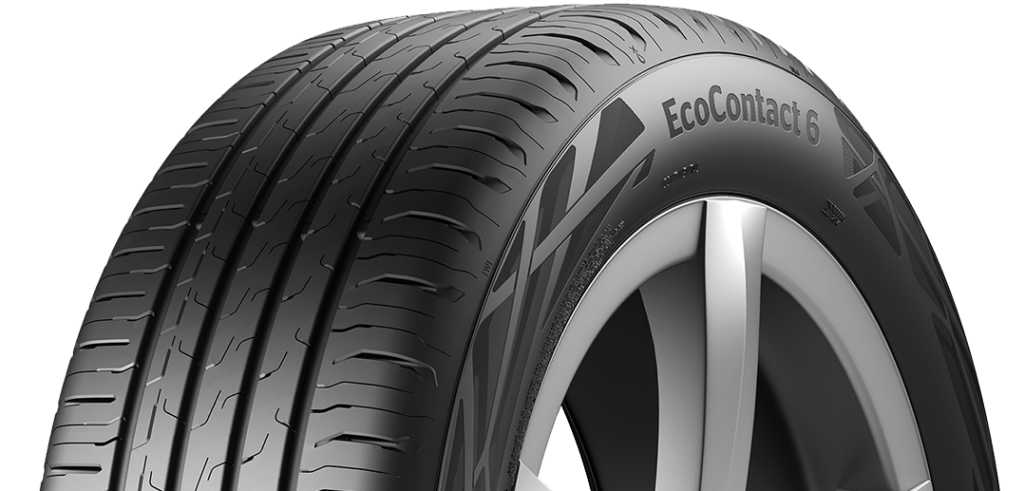Continental has announced that its tire development engineers have managed to further reduce the rolling resistance properties of the brand’s EcoContact 6 summer tire. Designed specifically for Ford vehicles, the EcoContact 6 now surpasses the rolling resistance required to meet the EU Tire Label’s highest Class A ranking by over 15%.
Calculations by the tire manufacturer show that the lower rolling resistance can mean a lower energy consumption for EVs, and range can be increased by around 3-4%. For combustion engine vehicles, around 0.1 l/100km can be saved, equating to 2g/km less CO2 emissions.
The lower rolling resistance was achieved through several design revisions, including a reduction in the quantity of materials used to produce the tires and an optimized compound that lowers both abrasion and heat build-up; a factor that greatly affects rolling resistance.
“In connection with an original equipment order placed by Ford, we have succeeded in improving rolling resistance properties to an extraordinary degree,” commented Holger Lange, head of passenger tire development, OEM business, Continental. “This is all the more remarkable because we managed to achieve this without compromising on tire safety or comfort.”
In addition to reducing the tire’s rolling resistance, Ford also stated that the tire should provide a higher mileage over its service life along with shorter braking distances. Due to the conflicting objectives, development engineers focused on the interplay of each performance factor to achieve the vehicle manufacturer’s objectives and requests.
“Thanks to their special properties, the tires we developed are helping Ford to sustainably reduce vehicle energy consumption across all drive types and models,” explained Lange. “In so doing, our EcoContact 6 tires for Ford are setting a new rolling-resistance benchmark for the entire industry. In this way, we are making an important contribution to helping our OE customers achieve their WLTP fleet targets.”



